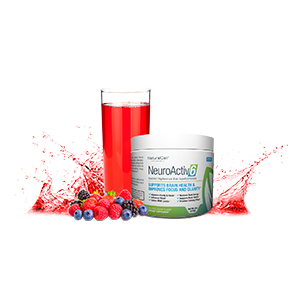
Table of Contents
Check out these 5 best foods for autoimmune diseases
The American Autoimmune Related Diseases Association approximates that 50 million Americans currently have a form of autoimmune disease. Additionally, the growing incidences of this category of disease costs nearly 100 billion dollars annually, doubling cancer-related expenses.
There are 80-100 identified variations of autoimmune diseases, with many more suspected to be currently unlabeled.
What exactly are autoimmune diseases?
The immune system is the body’s defense against disease and infection. In autoimmune diseases, the system becomes disrupted, and mistakenly begins attacking healthy cells in the body instead of pathogens.
Some of the most common types include systematic lupus erythematosus (lupus), type 1 diabetes, multiple sclerosis, Grave’s disease, rheumatoid arthritis, and Hashimoto’s thyroiditis.
All autoimmune diseases vary immensely from disease onset to symptoms to prognosis, but almost all remain without adequate cures and rely on insufficient treatments. Therefore, actions within your control become essential to living a functional life with such diagnoses. Aside from regular exercise, avoiding smoking and excessive amounts of alcohol, diet is a critical component of hindering disease progression and alleviating the severity of symptoms.
What kind of diet is most helpful?
Strong correlations exist between the onset of autoimmune diseases and living in western cultures. While these findings are encircled by endless debates of whether this is due to epigenetic causes from exposure to certain pathogens or other cultural aspects, the western diet has been heavily criticized as a potential catalyst.
Therefore, the removal of notable features of this diet is encouraged for anyone suffering from such conditions. These primarily consist of foods notorious for triggering inflammation, a major sign of autoimmune diseases. However, while diets requiring the removal of certain food grades provide relief, they often fail to highlight the foods you should be eating.
What are the 5 foods that can help?
1. Avocado
These versatile fruits are packed with nutrients, including carotenoids. Carotenoids are chemical compounds responsible for the bright colors in various fruits and vegetables and have been linked to lowering inflammation and boosting immunity in multiple research studies.
2. Green tea
Regular consumption of green tea has been shown to reduce the incidence of disease, the severity of symptoms, autoantibody levels, and inflammatory markers. Polyphenols extracted from green tea and administered to mice with the animal equivalent of type 1 diabetes, not only delayed onset of the disease itself but additionally diminished the degree of observable symptoms.
3. Salmon
Salmon is a power food for numerous reasons, but for taming an out-of-control immune system its high concentration of vitamin D helps comes in handy. In particular, vitamin D mollifies an exasperated response from Th17 cells. Th17 cells aid T-cells in producing chemicals that induce inflammation, and activate excessively in many disorders.
4. Leafy vegetables
A gene, T-bet, that plays a vital role in immune cell production effectively responds to the digestion of specific foods, especially leafy greens. These cells protect the intestine from harmful bacteria as well as alerting the rest of the body it has encountered a pathogen.
5. Turmeric
Curcumin is the main ingredient in turmeric and is often utilized for its antioxidant and anti-inflammatory effects. Recent research highlights curcumins’ ability to mitigate certain inflammatory diseases by influencing cytokines. Cytokines are important signals that help control immune cells. Therefore, turmeric consumption can promote immune cell regulation.
Try Neuroactiv6, a supplement that supports and protect your body against autoimmune disease attack.

Boost Mental Energy & Focus
Discover how just one glass a day of NeuroActiv6 can increase focus, clarity, and mental energy.
Learn More >>






 EMAIL:
EMAIL:
